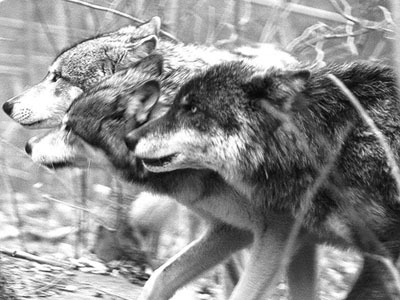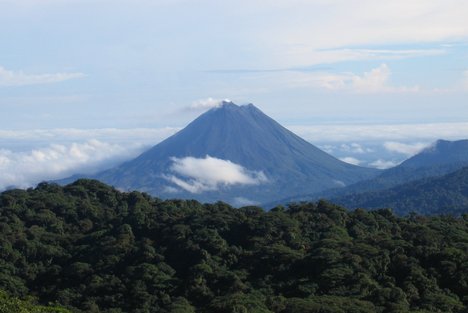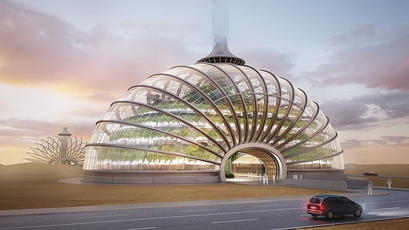Al Jazeera's Neave Barker reports from Moscow.
Personal Note: This is how I felt when Bush was illegally elected - twice

Kamchatka, Russian Volcano, Spews Giant Ash Clouds
The Klyuchevskaya Sopka, Eurasia's highest active volcano, exploded along with the Shiveluch volcano, 45 miles (70 kilometers) to the northeast, the Russian Emergency Situations Ministry's branch in Kamchatka said, adding that flights in the area had to change course.
Ash clouds from the remote volcanoes billowed up to 33,000 feet (10 kilometers) and were spreading east across the Pacific Ocean, vulcanologist Sergei Senyukov told Rossiya 24 television. Streams of lava flowed down the slopes of Shiveluch.
The U.S. Federal Aviation Administration on Thursday issued a notice to pilots that they should remain alert for possible ash clouds, saying emissions have "intermittently complicated air travel" in the area of the Kamchatkan Peninsula.
"Any air carriers, including foreign air carriers, that observe or experience any difficulties resulting from an encounter with volcanic ash, please notify air traffic control immediately," the notice said.
Several pilots have reported seeing ash clouds in the Alaskan region, FAA spokeswoman Laura Brown said. However, the ash has been below 25,000 feet, while planes are assigned altitudes above that level so there was no difficulty, she said. Thus far FAA hasn't issued any flight restrictions due to ash, she said.
The FAA spokeswoman Tammy Jones said the agency does not anticipate any impact from the eruptions on air traffic to the United States.
The Volcanic Ash Advisory Center in Tokyo issued an advisory for planes to be alert for the ash cloud, although Tokyo's Narita airport said it had no flights diverted yet.
South Korean flights in the region reported no disruptions, according to South Korea's Incheon International Airport Corporation, and South Korea's two main airlines, Korean Air and Asiana Airlines.
read more at link: http://www.huffingtonpost.com/2010/10/28/kamchatka-russian-volcano_n_775476.html

Superpack of 400 ravenous wolves terrorize Russian village

Volcanoes Erupt Side by Side in New Satellite Picture
Russian volcano erupts sending ash four kilometres high
Volcanoes Erupt Side by Side in New Satellite Picture - satellite photo from 13 February 10 - almost a year later.

Islamists advancing on Russian territory
Reports out of Russia appear to be confirming that the suicide bomber in Monday's attack at Domodedovo airport, which killed 35 and injured nearly 200, may have been a convert to Islam on jihad, according to a Joseph Farah's G2 Bulletin.
Authorities haven't revealed all details of the attacker, but analysts now are raising concerns that the explosion may have been an opening shot by al-Qaida in a war over central Asian territory, including parts of Russia, it wants as its own.
Militants in the northern part of Afghanistan and central Asia appear to be trying to convince Russia that they should be in control of its predominantly Islamic southern tier provinces of Chechnya, Ingushetica, Dagestan and Kabardino-Balkaria.
Analysts even wonder if the goal is for those regions to become "separate" from Russia.
Read more at http://www.wnd.com/?pageId=256405
Recent actions by the Russian leadership could indicate a shift in the way Russia hopes to be perceived internationally.
At the end of November, a number of seemingly unrelated but important messages came out of different branches of the Russian government. Taken together, they may signal a shift in the way the Russian political leadership wants to position Russia in the world. First, Prime Minister Vladimir Putin wrote an article for the German newspaper Süddeutsche Zeitung in which he forcefully advocated the idea of a strategic partnership between Russia and the European Union. In essence, the Russian prime minister proposed the creation of a common Russian-European economic space "from Lisbon to Vladivostok."
In this context, Lisbon was not meant as simply a geographic landmark; Putin's proposal came on the heels of the Russia-NATO summit held there. At the summit, Russian President Dmitry Medvedev and the leaders of the alliance agreed to collaborate on building an anti-ballistic missile defense system (ABM) in Europe. If implemented, such a system could pave the way to the creation of a common Russian-European security space.
Critics would argue that Russian-NATO cooperation on ABM is far from assured and that Putin's strategic partnership proposal sounds more like a dream than a solid business plan, yet both Russia's willingness to mend fences with its sworn Cold War enemy and its desire to become engaged economically with the EU seem to indicate that Moscow now considers the European direction of its foreign policy as a major, if not the major, priority.
Second, on Nov. 26, the Russian State Duma, passed a resolution acknowledging that the 1940 Katyn massacre of 20,000 Polish citizens was committed on the direct orders of Soviet dictator Josef Stalin. The resolution went on to express the Duma's "deep sympathy for the victims of this unjustified repression."
A cynic might wink mischievously and note that the Duma resolution conveniently preceded Medvedev's visit to Poland on Dec. 6-7. However, when presenting the resolution, sponsor Konstantin Kosachev, chairman of the Duma's foreign affairs committee, called the document "historic" and stressed its importance for the Russian people, who were also victims of Stalin's crimes themselves. The competent and well-informed Kosachev could not, of course, be unaware that in January, Medvedev will be holding a meeting of his Human Rights Council focused on the topic of de-Stalinization.
Third, three days before the Duma session, Medvedev caused a stir among Russian pundits with a video blog address in which he warned about "stagnation" in Russian politics and called for more political openness. However unlinked Medvedev's video comments and the Duma resolution might first appear, they both work toward changing Russia's image abroad - by trying to shed its reputation as a giant that craves its Stalinist past and menaces its neighbors.
Finally, on Nov. 30, President Medvedev gave his third annual address to the Federal Assembly. Given that Medvedev's first address was devoted to political reforms and the second to economic modernization, many experts predicted that Medvedev's third address would focus on social issues. They were correct. The core of the president's speech was the thesis that modernization, both in political and economic spheres, is just a tool to solve the country's most pressing social problems: negative demographic trends, ecological deterioration, and worsening situations in education and health care. But what made the address somewhat unique was Medvedev's focus on child welfare. In a show of passion, completely unprecedented for a Russian political leader, Medvedev concluded his speech with the following:
"Everything we do, we do for those whom we love the most. It's our kids, for we wish them to live better than us, be better than us and achieve what we didn't have time to achieve."
Many Russian analysts called the address "bland" and accused the president of missing the opportunity to propose a set of breathtaking political reforms, including, for example, the formation of a new political party. Well, apparently the president and his advisors knew what every political analyst is supposed to know, too: One year before the beginning of a new election cycle, the country's president should focus on things about which the citizens care the most: the welfare of their families and, yes, their children. (Incidentally, political parties are held in very low esteem by ordinary Russians, as public polls repeatedly show.)
Besides, by publicly displaying his affection for Russian children, Medvedev, himself the father of a 15-year-old, might have again attempted to present Russia in a more positive way: As a kinder and gentler country. The gentle giant, so to speak.
Medvedev could argue that it's nicer to live in a country that is at peace with its neighbors. He could also argue that it's nicer to live in a country that cares for its children. And that it's much more fun to be the president of such a country.
continued at link: http://russianow.washingtonpost.com/2010/12/russia-the-gentle-giant.php
Russia to secure global uranium supplies with a new fuel bank
The State Atomic Energy Corporation (Rosatom) will provide guaranteed uranium supplies worldwide.
Russia to host 2018 world cup
FIFA announced that Russia has won the right to host the World Cup in 2018.Russia.
FOCUSING ON THE NEEDS OF CHILDREN WINS THE HEARTS OF ALL NATIONS FOR THE SIMPLE REASON THAT MOST ADULTS RECOGNIZE THAT THE CHILDEN ARE THE LEADERS OF TOMORROW AND THE ELDERLY's CARETAKERS. Simply put: What goes around, comes around.
Last edited by Carol on Sat Dec 10, 2011 11:19 am; edited 9 times in total


























